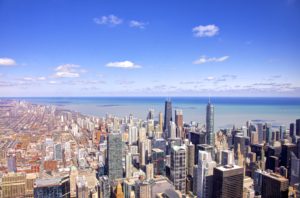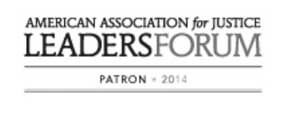Frequently Asked Questions About Slip & Fall Accidents
Slip and fall accidents are the most common premises liability cases. If someone slips and falls at work, on public property, or on private property due to negligence by the owner, then they may be eligible for compensation for their injuries under premises liability laws. Injuries sustained from slip and fall accidents can have serious consequences, including spinal cord damage, brain damage, broken bones, or even death, depending on how severe the fall was.
While every premise liability case has its own unique set of facts and circumstances, here are four common questions that arise involving slip and fall accidents.
Top 4 Questions Regarding Slip and Fall Accidents
1. I fell and injured myself on someone else’s property. Do I have a legal case?
 If you have been injured in a slip and fall accident while on someone else’s property, you may be eligible to file a premises liability claim. However, not all slip and fall accidents will qualify as premises liability cases. To pursue a premises liability case, there must be evidence that the property owner knew or should have known about a dangerous condition at the site of an accident but failed to take action to prevent harm from occurring.
If you have been injured in a slip and fall accident while on someone else’s property, you may be eligible to file a premises liability claim. However, not all slip and fall accidents will qualify as premises liability cases. To pursue a premises liability case, there must be evidence that the property owner knew or should have known about a dangerous condition at the site of an accident but failed to take action to prevent harm from occurring.
As a Chicago injury lawyer, I have helped many injured clients recover damages in premise liability cases resulting from a slip and fall accident. A premises liability case is a legal claim that you can file against someone who owns or controls property where you suffered an injury. As a result, you may seek compensation for your medical bills, lost wages, pain, and suffering—and possibly much more if you were severely injured or killed in an accident.
2. What examples of dangerous conditions may result in a premise liability claim?
Property owners are responsible for maintaining their property in a safe condition, which includes keeping it free of dangerous or hazardous conditions that can cause injury. Unfortunately, many unsafe or hazardous conditions may result in slip-and-fall accidents.
For example, an employee may fail to report an unsafe condition, such as a slippery patch of floor or a broken step, which could lead to a slip and fall accident. Other examples include:
Failure to maintain the premises in good working order
- Inadequate lighting
- Improper cleaning of floors or surfaces
- Dirty floors or surfaces on which someone could slip, trip, or fall
- Lack of handrails or other means for people with disabilities to maneuver safely on stairs or ramps
3. Should I take photographs of where my slip and fall accident occurred?
One of the most important things to do immediately after a slip-and-fall accident is to photograph the scene and the property’s condition. This evidence is significant because it documents the conditions of the ground you were walking on when you slipped and fell caused you to fall.
Frequently our office receives a phone call from an individual who has fallen on some defective property but does not have any photographs showing what caused the fall. Unfortunately, without photos of the scene at the time of the fall, it is difficult to provide proof of the property’s condition at the time of the accident, especially if the property owner has made repairs. It becomes the injured person’s word about the property versus the property owner’s version of the defective condition of the property. This scenario makes pursuing a slip-and-fall case very difficult.
Additionally, insurance companies, juries, and lawyers want to see what caused the fall. Photographs showing what the property looked like at the time of the fall are the best evidence.
Use Your Smartphone Camera
Today most people are walking around with smartphones that include high-quality cameras. Thus, thus taking a photo of the scene should be simple, easy, and necessary. If you are too injured and cannot take a picture of the accident scene, have someone else take the photos for you. Your case needs to have photographs taken of the location of a slip and fall area. These photographs will show potential jurors what the property looked like at the time of the accident and counteract what the property owner states about their property.
4. How do I know if I need a premise liability lawyer?
A premise liability lawyer will know how to review the facts of your case and help you understand what types of damages may be available through a premises liability claim. This means that if someone else was at fault for causing your injuries during an accident, you might be able to recover compensation for medical bills, lost wages, pain, and suffering (if applicable), vehicle damage (if applicable), etc.
Keep in mind, if you’ve been injured by a slip and fall accident, the property owner’s insurance company will be looking for any way to deny or reduce your claim. A good premise liability attorney will ensure that your claim is handled properly, maximize your compensation and protect you from aggressive tactics by insurance companies.
However, your right to fair compensation following a slip and fall accident is time sensitive. It’s important to speak to an experienced lawyer as soon as possible to protect your rights and help you understand the legal process.
Contact Vinkler Law Offices Premise Liability Attorneys in Chicago
At Vinkler Law Offices, our injury attorneys have extensive experience helping slip and fall accident victims recover full and fair compensation for their injuries. If you or your loved one has been injured in a slip-and-fall accident, our Chicago premise liability attorneys can provide you with the legal advice and guidance you need.
Contact us today for a free consultation and case review.
Schedule Now Form with Buttons
Complimentary Case Review Available Now





